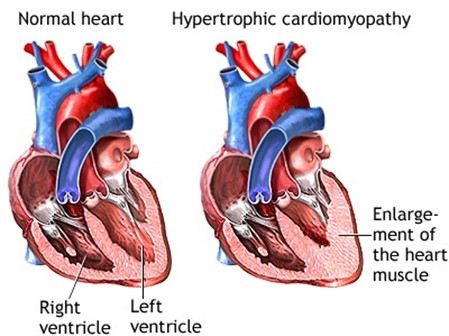Complications of sustained hypertension include which of the following?
Retinal damage
Stroke
Renal disease
All of the above
The Correct Answer is D
Sustained hypertension can lead to several complications, including damage to the blood vessels in the retina (retinopathy), increased risk of stroke, and damage to the kidneys (renal disease). Other potential complications include heart disease, peripheral arterial disease, and cognitive impairment. It is important to manage hypertension through lifestyle modifications and medication to prevent these complications.
Nursing Test Bank
Naxlex Comprehensive Predictor Exams
Related Questions
Correct Answer is C
Explanation
Hypertension, or high blood pressure, is a major risk factor for the development of left ventricular hypertrophy (LVH), which is characterized by thickening of the myocardium (heart muscle). LVH occurs in response to increased afterload (the resistance the heart has to pump against), which is a common feature of hypertension.

Angiotensin II, a hormone that is activated in response to hypertension, is a major mediator of LVH in this setting. Angiotensin II causes vasoconstriction (narrowing of blood vessels) and promotes the retention of salt and water, which increases blood volume and pressure. Additionally, angiotensin II stimulates the proliferation of cardiac myocytes (heart muscle cells) and the synthesis of extracellular matrix proteins, leading to hypertrophy and fibrosis of the myocardium.
Other factors that may contribute to LVH in hypertension include increased sympathetic nervous system activity, oxidative stress, and inflammation. However, angiotensin II is considered a key mediator of this process, and drugs that block the renin-angiotensin-aldosterone system (RAAS), such as angiotensinconverting enzyme (ACE) inhibitors and angiotensin receptor blockers (ARBs), are often used to treat hypertension and reduce the risk of LVH and other cardiovascular complications.
Correct Answer is B
Explanation
The correct answer is B. Systolic pressure less than 120 mmHg and diastolic pressure less than 80 mmHg is considered normal blood pressure in adults according to current guidelines. A systolic pressure between 140-150 mmHg (option A) would be classified as stage 1 hypertension, while a systolic pressure greater than 140 mmHg and diastolic pressure of 100 mmHg (option D) would be classified as stage 2 hypertension. A systolic pressure less than 100 mmHg regardless of diastolic pressure (option C) would be considered low blood pressure.
Whether you are a student looking to ace your exams or a practicing nurse seeking to enhance your expertise , our nursing education contents will empower you with the confidence and competence to make a difference in the lives of patients and become a respected leader in the healthcare field.
Visit Naxlex, invest in your future and unlock endless possibilities with our unparalleled nursing education contents today
Report Wrong Answer on the Current Question
Do you disagree with the answer? If yes, what is your expected answer? Explain.
Kindly be descriptive with the issue you are facing.
